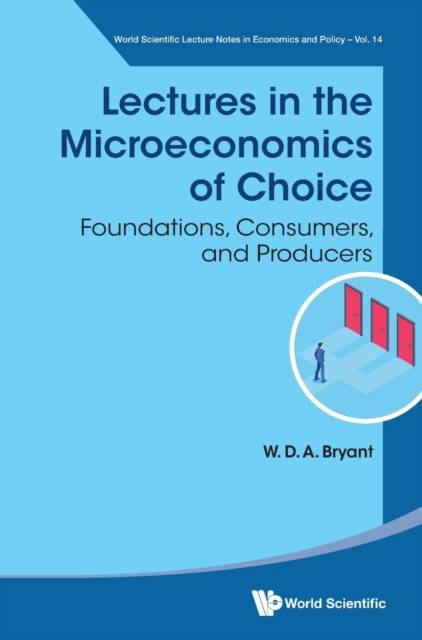
- Afhalen na 1 uur in een winkel met voorraad
- Gratis thuislevering in België vanaf € 30
- Ruim aanbod met 7 miljoen producten
- Afhalen na 1 uur in een winkel met voorraad
- Gratis thuislevering in België vanaf € 30
- Ruim aanbod met 7 miljoen producten
Zoeken
Lectures in the Microeconomics of Choice: Foundations, Consumers, and Producers
William David Anthony Bryant
€ 273,45
+ 546 punten
Omschrijving
People pursue their own interests, whatever those interests might be. Some people have interests that are narrow and selfish, while others have interests that are broad and altruistic. The idea that people are self-interested underpins all of economic analysis and raises two fundamental questions: 1. How do people choose the actions they think will further their own interests? 2. Can the potentially conflicting interests of different people be made to 'mesh' in some sort of socio-economic equilibrium? This book is devoted to a detailed study of the first question. Its Companion Volume (Economy-Wide Microeconomics: Equilibrium, Optimality, Applications and Tests) makes a detailed study of the second question.Following some foundational remarks, this book studies the Arrow-Debreu theory of consumer choice. That theory supposes people choose so as to maximize a complete, continuous, transitive, and reflexive binary preference relation over a non-empty and compact choice set. The book then studies numerous refinements, generalizations and extensions of each of these restrictions -- up to and including recent work on Behavioral theories of choice and choice behaviour when preferences are intransitive/incomplete/discontinuous. Also considered is choice behaviour in environments that are not necessarily compact. A study is also made of intertemporal choice and choice under uncertainty. The study of Arrow-Debreu choice theory and its extensions are presented from the Primal, Dual, and Revealed Preference points of view.Consumers are not the only agents in the economy, as Producers are present as well. Beginning with a study of the Arrow-Debreu idea that producers choose from a convex production set so as to maximize profit, the book considers extensions and generalizations of this framework, particularly to non-convex environments. The study is presented from the Primal and Dual points of view.The final chapter in the book provides a link to its Companion Volume. The Chapter indicates how the theories of consumer and producer choice studied here help inform answers of the second question posed above.Resources are available to instructors who adopt this book. More details at www.worldscientific.com/worldscibooks/10.1142/12789-sm
Specificaties
Betrokkenen
- Auteur(s):
- Uitgeverij:
Inhoud
- Aantal bladzijden:
- 780
- Taal:
- Engels
- Reeks:
Eigenschappen
- Productcode (EAN):
- 9789811254703
- Verschijningsdatum:
- 24/03/2023
- Uitvoering:
- Hardcover
- Formaat:
- Genaaid
- Afmetingen:
- 170 mm x 244 mm
- Gewicht:
- 1428 g

Alleen bij Standaard Boekhandel
+ 546 punten op je klantenkaart van Standaard Boekhandel
Beoordelingen
We publiceren alleen reviews die voldoen aan de voorwaarden voor reviews. Bekijk onze voorwaarden voor reviews.











